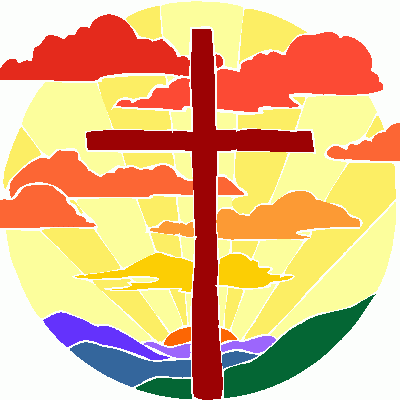Many people choose names for their children that are significant to them in some way. There have been cultures that even wait to name a child until something of their personality has manifested, so that the name can be appropriate to the person.
When referring to God, the writers of the Bible would usually start with one of the basic words for “God”, and then add on something that describes the specific aspect of His character that impressed them at the time. Together, the collection of names tells a lot about who God is (although none can ever describe Him completely!).
The two basic words used most often are El (Plural: Elohim 1 ) and Yahweh 2. El is less personal, while Yahweh (usually Latinized as Jehovah) refers to God in His unique covenant relationship with Israel 3. Another common word is really a title more than a name: Adonai, meaning “Lord” or “Master”. This is an extension of Adon, which speaks simply to a higher-ranking human rather than to God.
Keep reading for some of the extended descriptive names used in the Bible.
Names based on El
El Shaddai: God Almighty
This is how God to described Himself to Abraham (Genesis 17:1-2) and to his grandson Jacob (Genesis 35:11-12) when commissioning them as the patriarchs of His chosen people.
El Elyon: God Most High
This is how the priest/king Melchizedek referred to God when blessing Abraham after a victory (Genesis 14:18-20). It is also used elsewhere to describe God’s absolute sovereignty over His creation (Deuteronomy 32:8, 2 Samuel 22:14, Psalm 47:2, Psalm 91:1-2).
El Olam: Everlasting God
This indicates God’s unending existence, presence, and power (Isaiah 40:28). That word Olam is regularly used to mean “forever”, “eternal”, “perpetual” or “permanent” (1 Chronicles 16:36).
El Chuwl: The God Who Gave You Birth
This describes God as the Source of life (Deuteronomy 32:18, Psalm 90:1-2). The same term is used in other circumstances as “bring forth” or “anguish” (as in labor pains).
El Roi: The God Who Sees
This is beautifully used by Hagar when God comforted her after she had been outcast by Abraham and his wife Sarah (Genesis 16:13).
El Gibhor: Mighty God
This is a part of Isaiah’s great prophecy of the Messiah (Isaiah 9:6-7) and also his prophecy of the Israelites return from exile in Babylon (Isaiah 10:21).
Names based on Jehovah
Jehovah Nissi: The Lord My Banner
This is how Moses remembered God when building a special altar to commemorate a victory (Exodus 17:15). Like today, a banner was used as a signal or standard, a gathering point for people to rally around. Another famous use of the word was when Moses lifted a bronze replica of a serpent onto a “nês” so that those who viewed it were healed of snake bites. Jesus referred to the incident as a prophecy of Himself, to be lifted up and then to heal those who looked to Him (John 3:14-15).
Jehovah Raah: The Lord My Shepherd
Not surprising in a family of shepherds, this is how the patriarch Jacob/Israel thought of God when blessing his descendents (Genesis 48:15). And, of course, there is “The Lord is my Shepherd” in Psalm 23.
Jehovah Rapha: The Lord That Heals
This is how God reminded His people of His loving care, after He had provided water for them in the wilderness (Exodus 15:26). Another famous reference is the promise to heal the land if His people repent after wrongdoing (2 Chronicles 7:14). The Psalms have several praises to God for His healing (Psalm 103:3, Psalm 107:19-20, Psalm 147:1-3).
Jehovah Shammah: The Lord Is There
This is the highlight of the prophet Ezekiel’s vision of the renewed city of Jerusalem (Ezekiel 48:35).
Jehovah Tsidkenu: The Lord Our Righteousness
This is what the prophet Jeremiah predicted of the coming Messiah (Jeremiah 23:5-6).
Jehovah Mekoddishkem: The Lord Who Sanctifies You (makes you holy)
This is how God described His role when giving rules for the Sabbath and other commandments (Exodus 31:13, Leviticus 20:8, Ezekiel 20:11-12) and when describing the Kingdom of the coming Messiah (Ezekiel 37:24-28).
Jehovah Jireh: The Lord Will Provide
Abraham worshipped when God provided the animal for sacrifice, to spare Abraham’s son Isaac (Genesis 22:1-14).
Jehovah Shalom: The Lord Is Peace
This is how Gideon thought of God when He commissioned him to take the lead in defeating the Midianite enemies who had been oppressing Israel (Judges 6:22-24).
Jehovah Sabaoth: The Lord of Hosts
“Hosts” is used as a synonym for “armies”. This is used over 200 times in the Old Testament – including 48 times by Isaiah, 70 times by Jeremiah, and 45 times by Zechariah. Each time, there is the context of God as leader of a mighty army, dispensing justice and/or coming to the rescue of His people (1 Samuel 17:45, 2 Samuel 6:2, Isaiah 2:12, Isaiah 14:27, Isaiah 24:23, Jeremiah 30:8, Zechariah 8).
Jehovah-Bore: The Lord Creator
Besides the obvious “In the beginning, God created the heavens and the earth” (Genesis 1:1), Isaiah refers to God as the Creator to remind people of His absolute sovereignty (Isaiah 43:1).
Other Names
Holy One of Israel
Of the 31 times I find this in my Bible, 25 of them are in Isaiah. This is one of his favorite terms for God, used from the first chapter (1:4) to next to the last (60:14).
Alpha and Omega: The Beginning and End
Based on the first and last letters of the Greek alphabet, this is used in Revelation to describe both God and Jesus as all-encompassing (Revelation 1:8, 21:6 and 22:13). This is the equivalent of our saying “From A to Z”.
Attiyq Youm: The Ancient of Days
This is how the prophet Daniel described God in his vision of the final times (Daniel 7:9, 7:13, and 7:22).
Abba: Father
This intimate term for Father (more like “Daddy”) was used by Jesus to demonstrate His close relationship to His Father (Mark 14:36). The Apostle Paul taught that all Christians have the privilege of that same close relationship (Romans 8:15, Galatians 4:6-7).
All Together
Together, these names give the picture of a God who is completely in control: Almighty, Creator, Everlasting. But this same God is also intimate: Shepherd, Healer, Provider. He is Holy: Most High, Alpha and Omega, Ancient of Days. But He is also the one Who Sanctifies and gives Peace and Righteousness. I know of no other religion that claims such a great God. “He alone is worthy!” (Revelation 4:11, Revelation 5:12)
Footnotes and Scripture References
- The frequent use of plural noun elohim with singular verbs is interpreted as a reference to the Trinity, one God in three Persons.
- Yahweh is adding vowels to make the Hebrew YHWH pronounceable. However, that is the Bible’s most sacred name for God. It is so sacred that, out of reverence, it was never really pronounced out loud at all. Bible translations often print it as “LORD” in all capitals, as opposed to Adonai, the more common mixed-case “Lord”.
- This begins in Exodus 3:13-14 when Moses asks God for His name. The answer is “I AM”, or havah, as in perfectly self-existent and needing no external label in order to establish His identity.


